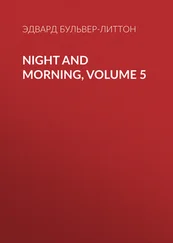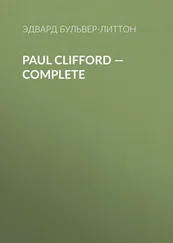Эдвард Бульвер-Литтон - Night and Morning, Complete
Здесь есть возможность читать онлайн «Эдвард Бульвер-Литтон - Night and Morning, Complete» — ознакомительный отрывок электронной книги совершенно бесплатно, а после прочтения отрывка купить полную версию. В некоторых случаях можно слушать аудио, скачать через торрент в формате fb2 и присутствует краткое содержание. Жанр: foreign_prose, literature_19, Европейская старинная литература, foreign_antique, на английском языке. Описание произведения, (предисловие) а так же отзывы посетителей доступны на портале библиотеки ЛибКат.
- Название:Night and Morning, Complete
- Автор:
- Жанр:
- Год:неизвестен
- ISBN:нет данных
- Рейтинг книги:3 / 5. Голосов: 1
-
Избранное:Добавить в избранное
- Отзывы:
-
Ваша оценка:
- 60
- 1
- 2
- 3
- 4
- 5
Night and Morning, Complete: краткое содержание, описание и аннотация
Предлагаем к чтению аннотацию, описание, краткое содержание или предисловие (зависит от того, что написал сам автор книги «Night and Morning, Complete»). Если вы не нашли необходимую информацию о книге — напишите в комментариях, мы постараемся отыскать её.
Night and Morning, Complete — читать онлайн ознакомительный отрывок
Ниже представлен текст книги, разбитый по страницам. Система сохранения места последней прочитанной страницы, позволяет с удобством читать онлайн бесплатно книгу «Night and Morning, Complete», без необходимости каждый раз заново искать на чём Вы остановились. Поставьте закладку, и сможете в любой момент перейти на страницу, на которой закончили чтение.
Интервал:
Закладка:
“Yes, Sir. May I speak a word with you?”
“Well, what?”
“Your uncle, sir, sent for me to come to him, the day before we left town.”
“Aha!—indeed!”
“And I could just pick up among his servants that he had some suspicion—at least, that he had been making inquiries—and seemed very cross, sir.”
“You went to him?”
“No, Sir, I was afraid. He has such a way with him;—whenever his eye is fixed on mine, I always feel as if it was impossible to tell a lie; and—and—in short, I thought it was best not to go.”
“You did right. Confound this fellow!” muttered the bridegroom, turning away; “he is honest, and loves me: yet, if my uncle sees him, he is clumsy enough to betray all. Well, I always meant to get him out of the way—the sooner the better. Smith!”
“Yes, sir!”
“You have often said that you should like, if you had some capital, to settle in Australia. Your father is an excellent farmer; you are above the situation you hold with me; you are well educated, and have some knowledge of agriculture; you can scarcely fail to make a fortune as a settler; and if you are of the same mind still, why, look you, I have just L1000. at my bankers: you shall have half, if you like to sail by the first packet.”
“Oh, sir, you are too generous.”
“Nonsense—no thanks—I am more prudent than generous; for I agree with you that it is all up with me if my uncle gets hold of you. I dread my prying brother, too; in fact, the obligation is on my side; only stay abroad till I am a rich man, and my marriage made public, and then you may ask of me what you will. It’s agreed, then; order the horses, we’ll go round by Liverpool, and learn about the vessels. By the way, my good fellow, I hope you see nothing now of that good-for-nothing brother of yours?”
“No, indeed, sir. It’s a thousand pities he has turned out so ill; for he was the cleverest of the family, and could always twist me round his little finger.”
“That’s the very reason I mentioned him. If he learned our secret, he would take it to an excellent market. Where is he?”
“Hiding, I suspect, sir.”
“Well, we shall put the sea between you and him! So now all’s safe.”
Caleb stood by the porch of his house as the bride and bridegroom entered their humble vehicle. Though then November, the day was exquisitely mild and calm, the sky without a cloud, and even the leafless trees seemed to smile beneath the cheerful sun. And the young bride wept no more; she was with him she loved—she was his for ever. She forgot the rest. The hope—the heart of sixteen—spoke brightly out through the blushes that mantled over her fair cheeks. The bridegroom’s frank and manly countenance was radiant with joy. As he waved his hand to Caleb from the window the post-boy cracked his whip, the servant settled himself on the dickey, the horses started off in a brisk trot,—the clergyman was left alone.
To be married is certainly an event in life; to marry other people is, for a priest, a very ordinary occurrence; and yet, from that day, a great change began to operate in the spirits and the habits of Caleb Price. Have you ever, my gentle reader, buried yourself for some time quietly in the lazy ease of a dull country-life? Have you ever become gradually accustomed to its monotony, and inured to its solitude; and, just at the time when you have half-forgotten the great world—that mare magnum that frets and roars in the distance—have you ever received in your calm retreat some visitor, full of the busy and excited life which you imagined yourself contented to relinquish? If so, have you not perceived, that, in proportion as his presence and communication either revived old memories, or brought before you new pictures of “the bright tumult” of that existence of which your guest made a part,—you began to compare him curiously with yourself; you began to feel that what before was to rest is now to rot; that your years are gliding from you unenjoyed and wasted; that the contrast between the animal life of passionate civilisation and the vegetable torpor of motionless seclusion is one that, if you are still young, it tasks your philosophy to bear,—feeling all the while that the torpor may be yours to your grave? And when your guest has left you, when you are again alone, is the solitude the same as it was before?
Our poor Caleb had for years rooted his thoughts to his village. His guest had been like the Bird in the Fairy Tale, settling upon the quiet branches, and singing so loudly and so gladly of the enchanted skies afar, that, when it flew away, the tree pined, nipped and withering in the sober sun in which before it had basked contented. The guest was, indeed, one of those men whose animal spirits exercise upon such as come within their circle the influence and power usually ascribed only to intellectual qualities. During the month he had sojourned with Caleb, he had brought back to the poor parson all the gaiety of the brisk and noisy novitiate that preceded the solemn vow and the dull retreat;—the social parties, the merry suppers, the open-handed, open-hearted fellowship of riotous, delightful, extravagant, thoughtless YOUTH. And Caleb was not a bookman—not a scholar; he had no resources in himself, no occupation but his indolent and ill-paid duties. The emotions, therefore, of the Active Man were easily aroused within him. But if this comparison between his past and present life rendered him restless and disturbed, how much more deeply and lastingly was he affected by a contrast between his own future and that of his friend! Not in those points where he could never hope equality—wealth and station—the conventional distinctions to which, after all, a man of ordinary sense must sooner or later reconcile himself—but in that one respect wherein all, high and low, pretend to the same rights—rights which a man of moderate warmth of feeling can never willingly renounce—viz., a partner in a lot however obscure; a kind face by a hearth, no matter how mean it be! And his happier friend, like all men full of life, was full of himself—full of his love, of his future, of the blessings of home, and wife, and children. Then, too, the young bride seemed so fair, so confiding, and so tender; so formed to grace the noblest or to cheer the humblest home! And both were so happy, so all in all to each other, as they left that barren threshold! And the priest felt all this, as, melancholy and envious, he turned from the door in that November day, to find himself thoroughly alone. He now began seriously to muse upon those fancied blessings which men wearied with celibacy see springing, heavenward, behind the altar. A few weeks afterwards a notable change was visible in the good man’s exterior. He became more careful of his dress, he shaved every morning, he purchased a crop-eared Welsh cob; and it was soon known in the neighbourhood that the only journey the cob was ever condemned to take was to the house of a certain squire, who, amidst a family of all ages, boasted two very pretty marriageable daughters. That was the second holy day-time of poor Caleb—the love-romance of his life: it soon closed. On learning the amount of the pastor’s stipend the squire refused to receive his addresses; and, shortly after, the girl to whom he had attached himself made what the world calls a happy match: and perhaps it was one, for I never heard that she regretted the forsaken lover. Probably Caleb was not one of those whose place in a woman’s heart is never to be supplied. The lady married, the world went round as before, the brook danced as merrily through the village, the poor worked on the week-days, and the urchins gambolled round the gravestones on the Sabbath,—and the pastor’s heart was broken. He languished gradually and silently away. The villagers observed that he had lost his old good-humoured smile; that he did not stop every Saturday evening at the carrier’s gate, to ask if there were any news stirring in the town which the carrier weekly visited; that he did not come to borrow the stray newspapers that now and then found their way into the village; that, as he sauntered along the brookside, his clothes hung loose on his limbs, and that he no longer “whistled as he went;” alas, he was no longer “in want of thought!” By degrees, the walks themselves were suspended; the parson was no longer visible: a stranger performed his duties.
Читать дальшеИнтервал:
Закладка:
Похожие книги на «Night and Morning, Complete»
Представляем Вашему вниманию похожие книги на «Night and Morning, Complete» списком для выбора. Мы отобрали схожую по названию и смыслу литературу в надежде предоставить читателям больше вариантов отыскать новые, интересные, ещё непрочитанные произведения.
Обсуждение, отзывы о книге «Night and Morning, Complete» и просто собственные мнения читателей. Оставьте ваши комментарии, напишите, что Вы думаете о произведении, его смысле или главных героях. Укажите что конкретно понравилось, а что нет, и почему Вы так считаете.












